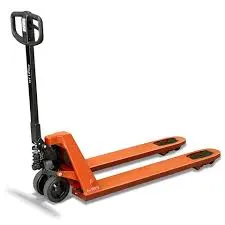


Understanding the Pricing of 5-Ton Crane Scales
In industries where heavy lifting is routine, the use of crane scales is integral to ensuring safety and efficiency. A crane scale is a device used to weigh heavy loads, typically suspended from a crane hook. Among the various models available, the 5-ton crane scale is a popular choice due to its versatile capabilities, efficiently catering to both industrial and commercial applications. This article will explore the factors influencing the price of a 5-ton crane scale, the range of prices you might encounter, and considerations for purchasing one that suits your needs.
Market Overview and Price Range
The price of a 5-ton crane scale can vary significantly based on several factors. Generally, you can expect to find these scales priced anywhere from $200 to $1,500, depending on quality, brand reputation, features, and technology used. More basic models may be on the lower end of the spectrum, while advanced or industrial-grade scales equipped with digital displays, wireless connectivity, and rugged build quality can reach the higher end.
For example, a basic mechanical 5-ton crane scale without additional features might cost around $200-$400. In contrast, a digital 5-ton crane scale that offers advanced features such as remote monitoring, overload protection, and data logging could be priced between $800 and $1,500. Brand plays an essential role—reputable manufacturers often command higher prices because of the reliability and service they provide.
Factors Affecting Pricing
1. Material and Build Quality The materials used in the construction of the crane scale affect both its durability and its price. Scales made from stainless steel or heavy-duty alloys are typically more expensive but offer greater resilience and longevity, especially in harsh working environments.

2. Technology and Features The technological innovations integrated into crane scales can significantly influence their cost. Digital models with advanced features such as wireless connectivity, real-time data transmission, and compatibility with software systems will be priced higher. Additionally, features like weight memory, tare functionality, and peak hold can add value.
3. Certification and Compliance For businesses operating in industries with strict regulatory requirements, it is crucial that crane scales meet certain standards (such as those set by OIML or NIST). Certified scales may come at a premium but offer the assurance of accuracy and reliability.
4. Brand Reputation Established brands that have a history of producing reliable, high-quality equipment often charge more. While this might seem like a drawback, investing in a well-regarded brand can lead to long-term savings through enhanced performance and lower maintenance costs.
Conclusion Making an Informed Choice
When considering the purchase of a 5-ton crane scale, understanding the pricing landscape is essential. It's important to assess your specific needs and the operating conditions to determine the best scale for your situation. While a lower-priced option may be tempting, it is crucial to account for durability, accuracy, and compliance with industry standards that could save you money in the long run.
Investing in a quality crane scale is not just a financial decision; it is also a safety and operational efficiency one. Take the time to compare models, read reviews, and understand the features that will benefit your specific application. By doing so, you can ensure that you select a crane scale that meets your requirements and offers the best value for your investment.



